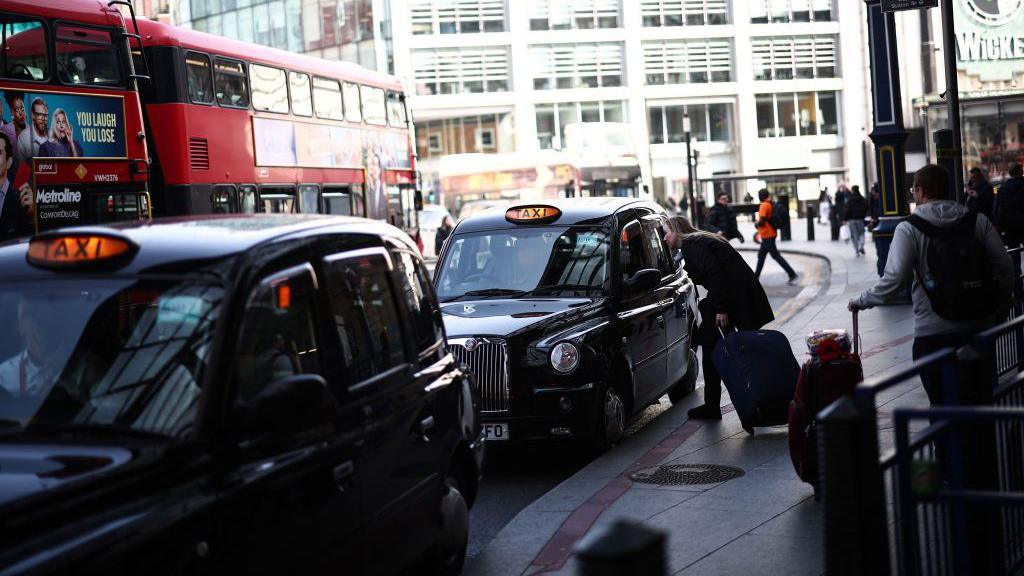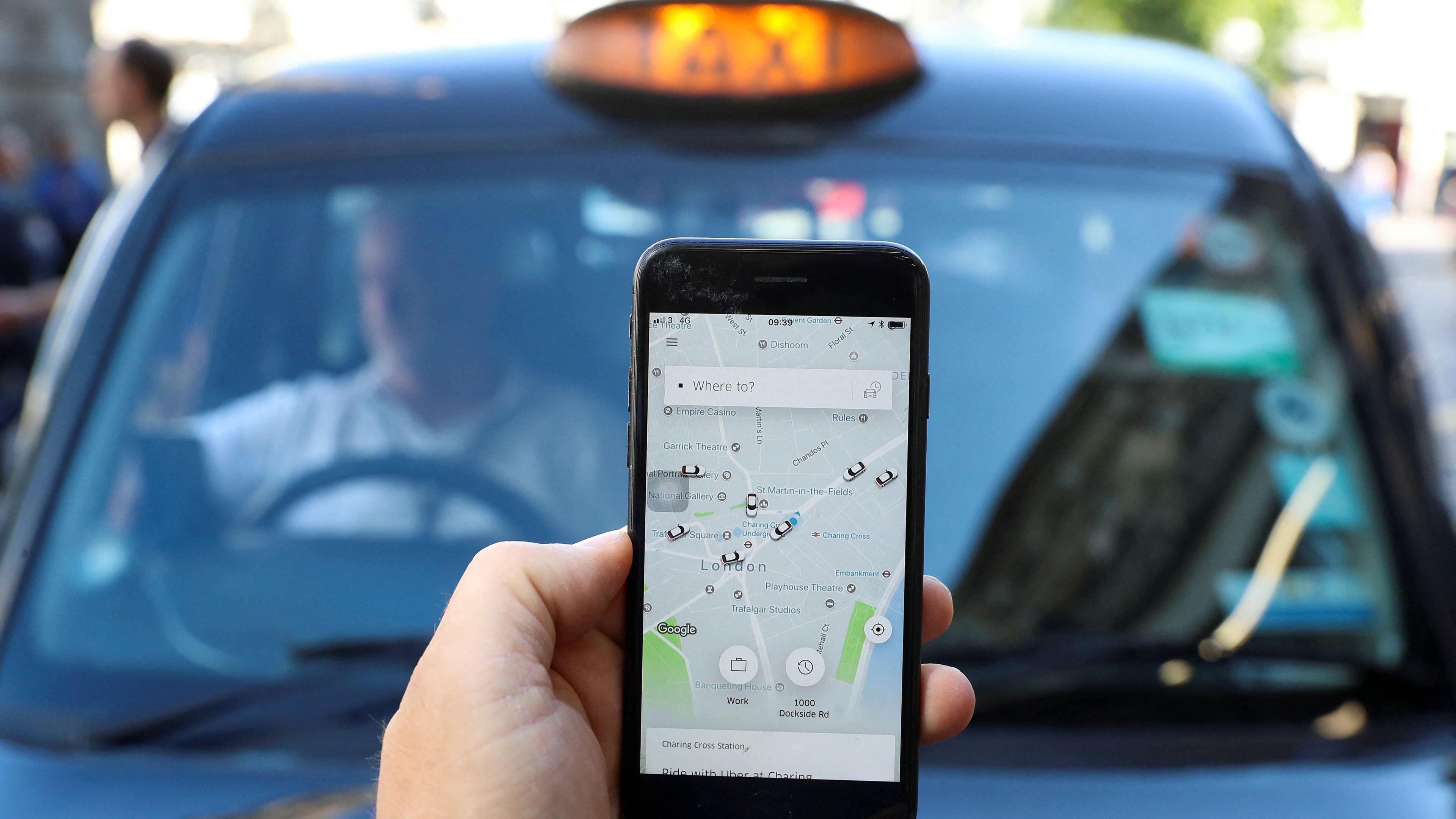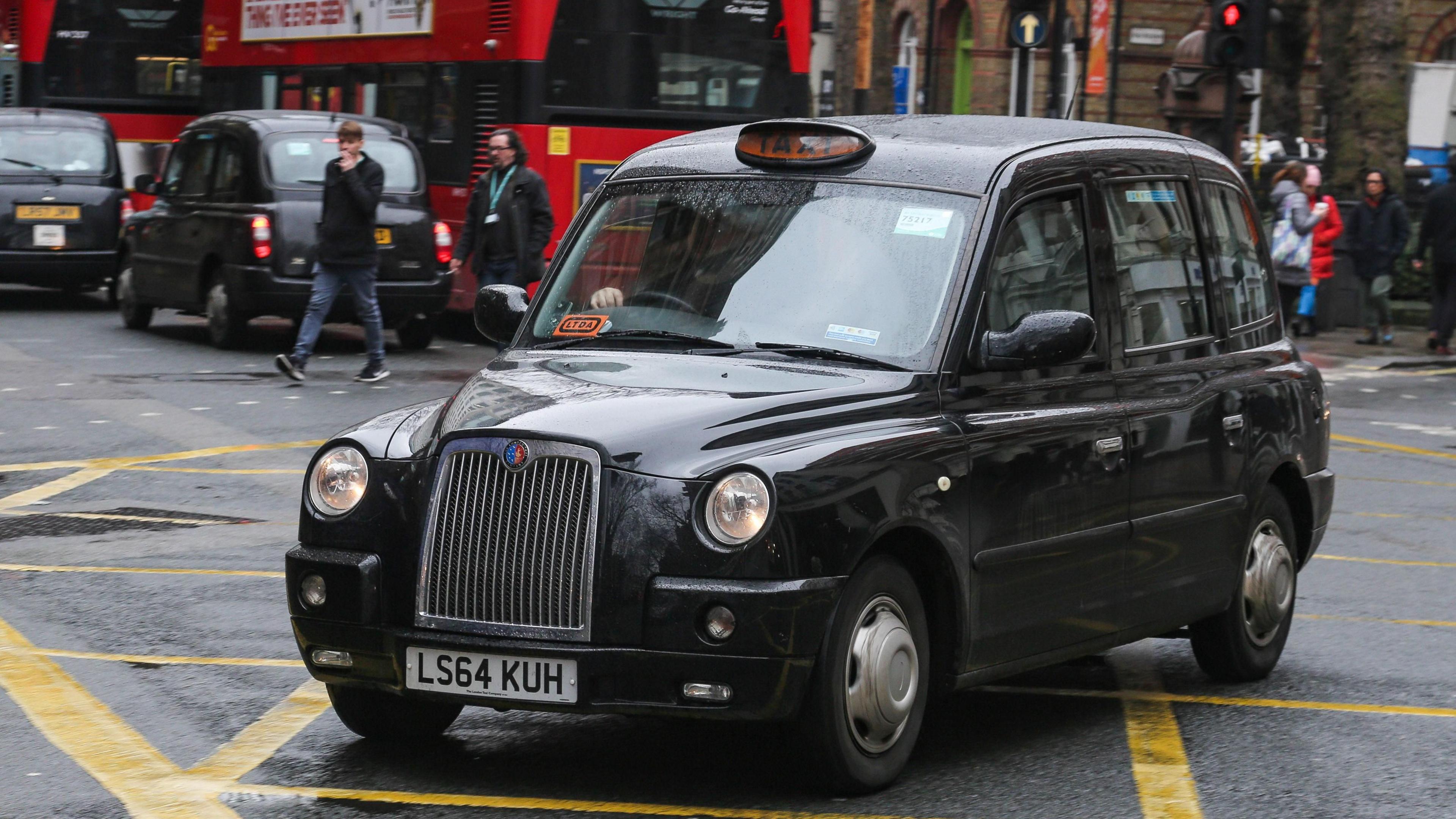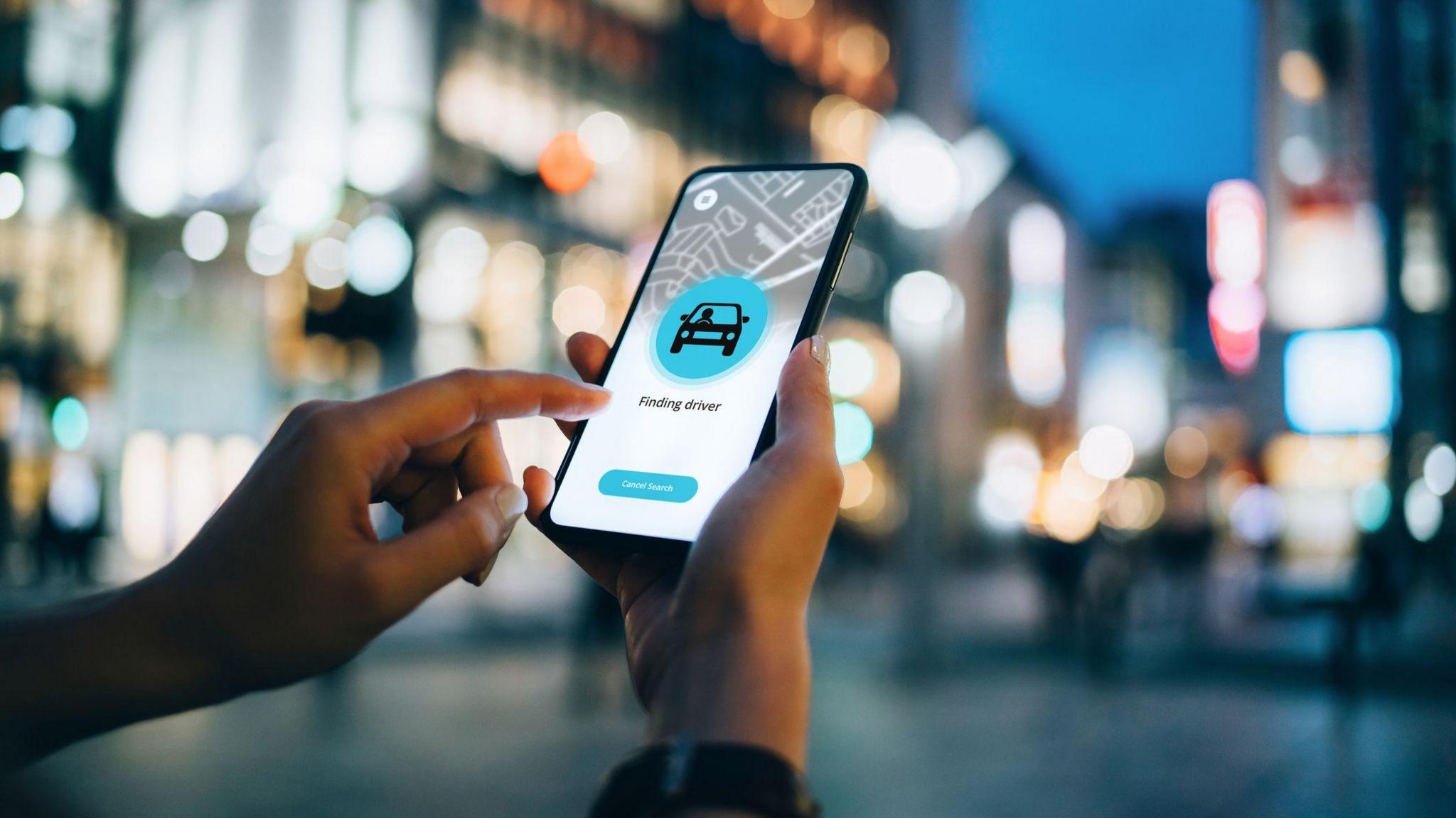Limit app driver numbers 'to protect black cabs'

Black cabs can be hailed on the street in London
- Published
London has too many private hire vehicles doing too few trips, adding to congestion and pushing down driver pay, politicians have said.
The London Assembly's transport committee has added at the same time the number of black cab drivers has fallen by a third in 10 years.
Elly Baker, the Labour Assembly Member who chairs the group, said the advent of taxi apps had led to "extreme competition for fares" so required radical intervention by the government and Transport for London (TfL).
TfL said London's taxi trade and private hire industry was "crucial to the success of the capital's transport network" and the government said it was aware of these concerns and was considering all options.
There are more than 106,000 private hire drivers licensed by TfL to work in London, the Local Democracy Reporting Service, external said.
There are also private hire drivers who are licensed outside of London but work predominantly in the capital.
Ms Baker said ministers had not addressed this issue "urgently" enough.
She said: "As drivers work longer hours to make up their pay, this leads to driver fatigue and raises questions around road safety.
"London is often seen as world-leading when it comes to transport systems.
"Yet, if we continue to lack the regulatory powers other cities have, we risk attracting bad actors who can exploit drivers and jeopardise the safety of Londoners."

The number of private hire drivers licensed in London exceeds 100,000
Ms Baker has written to the transport secretary asking for a cap on private hire licenses.
The number of licensed taxis - black cabs - in London fell from 22,810 in 2014 to 14,800 in 2024.
In a separate letter to TfL, Ms Baker called on the transport body to set a specific target to increase the number of London's "iconic" black cab drivers, suggesting their Taxi and Private Hire Action Plan, launched in March, did not go far enough in addressing the issue.
She said: "It is time that TfL gets serious about protecting this industry, drivers, and all the Londoners who rely on taxis and minicabs to get around – starting with a cap on private hire vehicle numbers."
The committee said black cab costs have increased by at least £23,000 in the past eight years and the cheapest vehicle costing £70,000.
Trevor Merralls, general secretary of the United Cabbies Group (UCG), said technology had "blurred the lines" and allowed private hire to operate as a ghost taxi fleet.
He told the Local Democracy Reporting Service: "We've always had taxis and private hire but since technology came along, private hire is now immediate – they operate like taxis. It's meant to be pre-booked.
"Prior to this, there was 50,000 private hire drivers in London – there are now more than double that. This has been at the taxis' expense.
"All our rights have been eroded. We have an expensive vehicle and our fares are set by TfL – private hire drivers can buy a cheaper vehicle and charge whatever they want, but we are treated the same."
TfL's director of Licensing and Regulation, Helen Chapman, said its Taxi and Private Hire Action Plan followed "wide-ranging engagement with stakeholders, including the taxi trade, private hire industry, local councils, and passenger groups".
She added: "The plan will enable us to attract taxi drivers from all backgrounds, ensure the safety of passengers and drivers, maintain consistently high standards, and continue to reduce the environmental impact of taxis and private hire vehicles.
"We remain fully committed to working with everyone to ensure that London has safe, accessible, and green taxi and private hire services, recognised across the world."
The Department for Transport said it has spent £70m through grants to support taxi drivers to make the switch to electric.
A spokesperson said: "Even when the grant comes to an end, electric vehicles can be up to eight times cheaper per mile than filling up with petrol.
"We are aware of the concerns around the current legislative and regulatory framework, including cross-border hiring.
"We are considering all options, seeking the best overall outcomes for passenger safety."
Listen to the best of BBC Radio London on Sounds and follow BBC London on Facebook, external, X, external and Instagram, external. Send your story ideas to hello.bbclondon@bbc.co.uk, external
- Published2 May 2024

- Published19 March

- Published26 March
